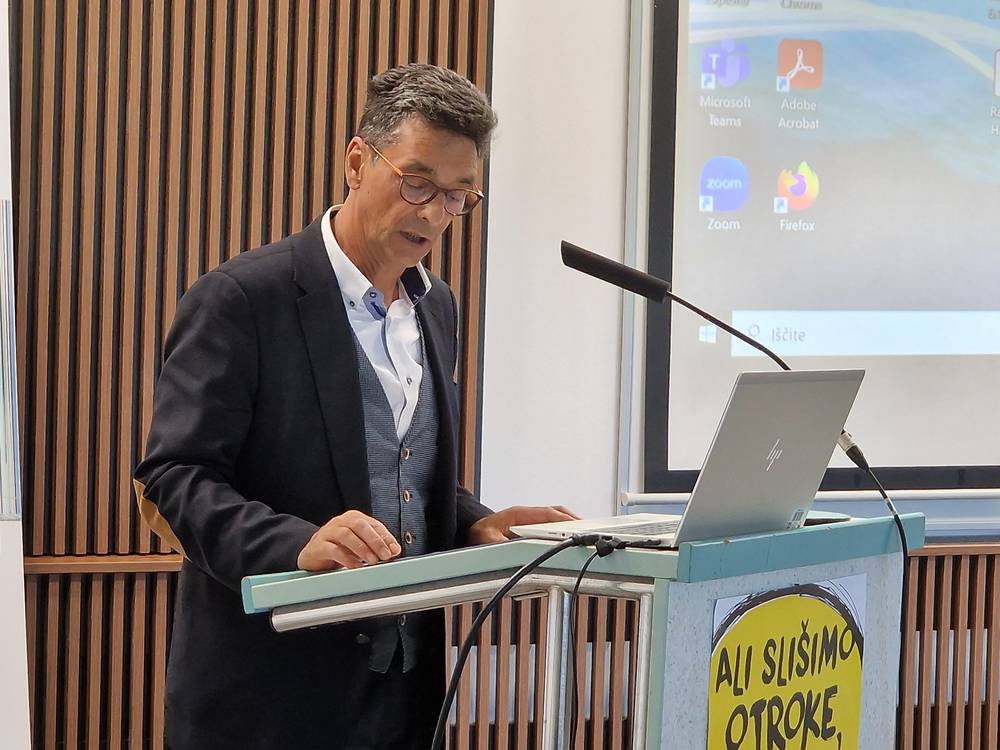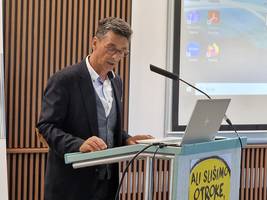On 6 and 7 October 2023, the institution of the Human Rights Ombudsman organised the traditional consultation on child advocacy at Terme Čatež which is entitled Advocacy as the Support Environment for the Protection and Strengthening of Mental Health of Children and Adolescents. It is attended by advocates, their coordinators, and members of the Expert Advocacy Council. At a two-day consultation, participants will focus on the understanding of children’s mental health for the better support to children in the process of advocacy.
In his opening address, Human Rights Ombudsman Peter Svetina warned about the variety of risks influencing mental health, especially for children, while society, which is oriented towards the individual, is delegating more and more demands and expectations even to children and adolescents and simultaneously decreasing sources of help and support from the community. He highlighted the significance of advocacy in easing the distress or mental problems of children who come into proceedings.
“[You] advocates have in your hands the knowledge and skills with which you can ease the distress of children, listen to them patiently, and persistently guide them towards the goal. Relief, patience, and persistence are the reflection of quality interpersonal relations, the good mental state of a society, and humanity. At the same time, they represent the main virtues of the advocacy process,” he added.
Svetina stressed that children who are supported by advocates are seen and heard, which can even be the first time for many of them. “To be seen and heard, to be considered and respected are the basic elements of good mental health,” he reminded the participants, adding that child advocacy is not a therapy, but it does have therapeutic effects. A child in the process of advocacy receives non-specific forms of support, since they can express their experience and thoughts, they can be empowered, and can be helped to develop social skills, possibly even strengthen self-confidence and self-image.
The Ombudsman also emphasised the importance of the preventive recognition of mental distress in children and adolescents through the process of advocacy. He urged the advocates not to neglect their own mental health, since constant meetings with distressed children can leave scars on a person. “It is crucial that you, too, have the possibility of relief and to strengthen your own mental health. Only mentally healthy adults can be the support for children who are not yet mature enough to be able to overcome the traps of life themselves,” said Svetina, thanking them for their contribution to the fact that children are shown that the world can be a safe place and that they are of value in it.

